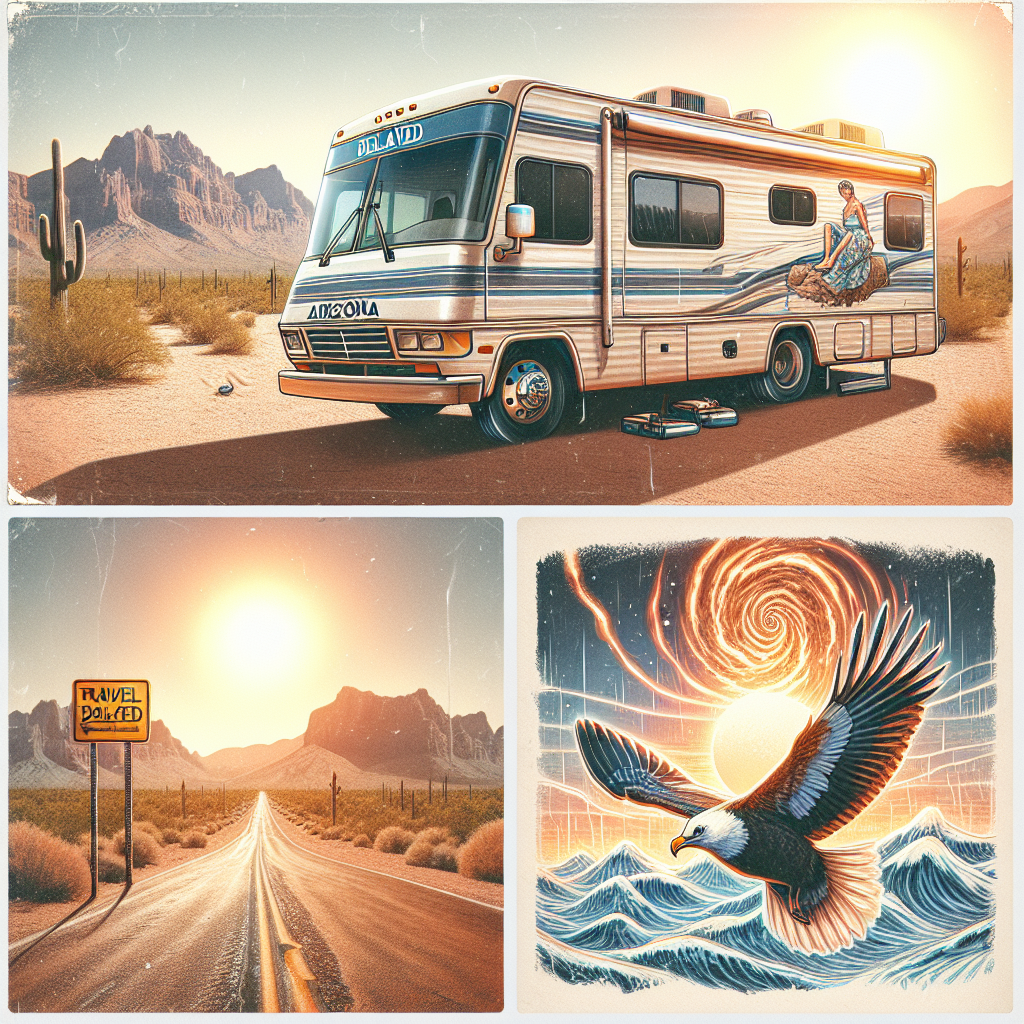Introduction
As summer temperatures soar to record highs across the southwestern United States, the picturesque desert landscapes of Arizona transform into a sweltering furnace. “Snowbirds”—those seasonal travelers who flock to warmer climates during the winter—might want to reconsider their plans for early autumn travel in recreational vehicles (RVs). This article outlines why delaying your RV travel plans to Arizona could be crucial for your health and safety.
The Scorching Heatwaves
Arizona is no stranger to heat, but recent years have seen an alarming increase in the frequency and intensity of heatwaves. These extreme weather events can create an environment that is not only uncomfortable but also dangerous for travelers. The average summer temperature in Arizona has consistently climbed above 100°F (37.8°C), with some areas like Phoenix regularly experiencing temperatures exceeding 110°F (43.3°C).
Health Risks
- Heatstroke: Excessive heat can lead to heatstroke, a life-threatening condition needing immediate medical attention.
- Dehydration: High temperatures can quickly lead to dehydration, especially when RVs lack efficient cooling systems.
- Heat Exhaustion: Symptoms include heavy sweating, weakness, dizziness, and fainting. This is common and can escalate into more severe conditions if left untreated.
Challenges for RV Enthusiasts
RVs offer a unique way to explore the country, but they are not without their limitations when it comes to extreme temperatures. Many RVs are not equipped to handle sustained high heat, presenting various logistical and safety challenges for their occupants.
Cooling Systems and Power Failure
Most RVs rely on air conditioning systems to keep the interior cool. However, these systems are often not designed to function effectively in extreme heat. Moreover, the additional strain on these cooling systems can lead to power failures, leaving you in the lurch when you need it most.
- Insufficient Insulation: RVs frequently have thin walls and inadequate insulation, amplifying the heat inside.
- Generator Overload: When running multiple cooling devices simultaneously, generators can easily become overloaded and fail.
Mechanical and Maintenance Issues
- Tire Blowouts: The hot asphalt can lead to increased tire pressure and blowouts, posing a significant risk while driving.
- Engine Overheating: Prolonged driving in high heat can cause RV engines to overheat, potentially leading to severe damage and costly repairs.
Alternative Travel Plans
Given these risks, snowbirds might find it prudent to postpone their travel plans until the temperatures fall to more manageable levels. Below are some alternatives to consider:
Exploring Northern Climates
While waiting for Arizona’s heat to subside, consider spending time in cooler northern destinations. Regions like the Pacific Northwest or the Rocky Mountains offer scenic beauty and milder climates.
- National Parks: Yellowstone, Glacier, and Olympic National Parks provide breathtaking natural scenery and numerous camping sites.
- Coastal Routes: Traveling along the Pacific Coast Highway offers stunning views and more moderate temperatures.
Flexible Travel Itineraries
If you’re set on exploring the southwestern United States, consider adopting a more flexible travel itinerary. Monitor weather forecasts closely and be ready to adjust your plans if heatwave warnings are issued.
- Night Travel: Plan to drive during the cooler evening or early morning hours to avoid the peak day’s heat.
- Frequent Breaks: Regularly stop at shaded rest areas to let your RV cool down and give yourself a break from the heat.
Safety Precautions
If delaying your trip isn’t an option, there are several safety precautions you can take to mitigate the risks:
- Stay Hydrated: Ensure you have an ample supply of water and electrolyte solutions to keep yourself hydrated.
- Carry Emergency Supplies: Have a stockpile of cooling packs, fans, and emergency medical supplies.
- Check Your RV: Conduct thorough checks of your RV’s cooling systems, tires, and engine before setting out.
Conclusion
Arizona’s stunning landscapes and unique attractions make it a popular destination for RV travelers, but the extreme heatwaves present a significant challenge. By considering the risks and taking appropriate safety measures—or better yet, delaying your travel plans until temperatures drop—you can ensure a safe and enjoyable RV journey. Remember, smart planning and flexible itineraries are key to a successful and memorable adventure.

